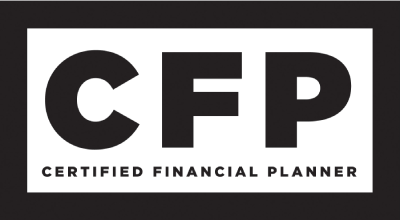The average person may assume that he or she can work until the age of 65 or even longer. Some people may envision picking up a part-time job in their golden years to help offset the rising cost of living. However, there is no guarantee that you will be capable of working after you hit your mid-60s.
Furthermore, there is no guarantee that you will have marketable skills when you are a senior citizen. Add in the fact that the economy could be mired in a nasty recession around the time you retire, and you might not be able to pick up that part-time job. This is precisely why you should plan for a retirement that might come earlier than expected.
Retirement Planning Is Not a D-I-Y Endeavor
The future is unpredictable. From advancements in automation to investments gaining and losing value to difficulty finding (or retaining) employment, nothing is set in stone. You could end up retiring in your 50s or early 60s, several years before you expected.
However, you do not have to perform your retirement planning alone: Lean on the guidance of a CERTIFIED FINANCIAL PLANNER™ Professional for retirement planning. You will be fully prepared for all possible scenarios.
You will also be protected from the conflicts of interest that sometimes occur with commissioned advisors (who may get a financial kickback for recommending products/services). A fee-only financial advisor accepts a specific amount of money –and that is all. You receive completely unbiased advice as a result.
Investment Risk As Early Retirement Nears
Early retirement may necessitate reducing investment risk in your mid-to-late 40s since you cannot afford to lose a considerable portion of your nest egg in the years leading up to retirement. This means the time to take risks with your investments is your 20s, 30s, and early 40s. TAKWEALTH can help prepare you for retirement at any age.
The bottom line is that markets fluctuate, making the future unknowable. If the bulk of your portfolio is invested in high-risk stocks and not mutual funds, ETFs, bonds, CDs, and so on, you could lose tens of thousands (or even hundreds of thousands) of dollars when a market pullback occurs.
No one can afford this during the years just before an early retirement. A CERTIFIED FINANCIAL PLANNER™ PROFESSIONAL can help you prevent unfavorable outcomes with strategic risk mitigation during the years leading up to your departure from the workforce.
Early Retirement Requires Early Saving
The path to early retirement begins with saving sooner rather than later. So, start saving as much money as possible now. As a result, your transition to early retirement should prove much easier and quicker. Keep in mind: The Urban Institute and ProPublica have reported that more than half of those steadily employed at age 50 ended up laid off first.
Others are forced out of their jobs prior to a planned retirement date. In other words, it is never too early to start saving for retirement. Many people planning on working until age 65 might not have the opportunity to remain employed. However, putting a couple of hundred dollars into your savings or investment accounts once every few months will not suffice.
Redirect as much of your discretionary income as possible into savings and investments so that the stage will be set for your money to significantly increase during the years ahead. This will help put more savings into your employer’s matching 401(k) plan. Max out your employer’s matching option, as well. Your retirement savings will gradually grow, making it easier to retire before you reach 65.
Consider a Health Savings Account
Even if you are perfectly healthy, you might have to provide care for a significant other or another family member. This can cut your career short. So, if you don’t have at least a couple hundred thousand dollars socked away for medical expenses throughout retirement, now is time to start planning to.
Listen closely as your CERTIFIED FINANCIAL PLANNER™ PROFESSIONAL discusses the option of a health savings account (HSA). Save money in it—and you may receive a tax deduction for doing so. At the same time, you will be adequately preparing for subsequent health expenses before they arrive.
The beauty of an HSA lies in the fact that you can make contributions without paying taxes: You only withdraw money from the account to pay for medical costs, as necessary. These withdrawals are not taxed, so more money remains in your account to cover the seemingly inevitable potential future medical expenses.
Consider a Backup Income Plan
 Mental sharpness fades throughout the aging process. Making matters worse, you still have to keep improving your skillset after years in the same job. At the same time, downsizing, economic contractions, and tech advances that eliminate jobs happen every day. These are all reasons to think of additional ways to generate income should you have to retire early.
Mental sharpness fades throughout the aging process. Making matters worse, you still have to keep improving your skillset after years in the same job. At the same time, downsizing, economic contractions, and tech advances that eliminate jobs happen every day. These are all reasons to think of additional ways to generate income should you have to retire early.
Even if you only work part-time after retiring early, a steady paycheck will go a long way in helping offset the rising cost of living and unexpected expenses. For example, becoming a part of the gig economy will help you remain employed in the event that you have to end your 9-to-5 job early. From delivering food to freelance writing, consulting, working retail, or providing customer service, there are countless ways to make money after retiring from your regular job.
In other words, it literally pays to be prepared to pivot. So, remain flexible in terms of potential employment. At the same time, consider passive income, as well. These inflationary days are a good time to consider investing in TIPS, too: TIPS stands for “Treasury Inflation-Protected Securities.”
Backed by the U.S. government, these investments are indexed in step with inflation. This means that as the inflationary rate climbs, their price (or principal) is adjusted, preserving their monetary value. Even when the value of the dollar declines, TIPS investors have a layer of protection.
As your resource for retirement planning in Los Angeles, TAKWEALTH is on your side. You are not far when you see the Social Security building in Torrance. Contact us today, and we will schedule a meeting.
1069987-00001-00



